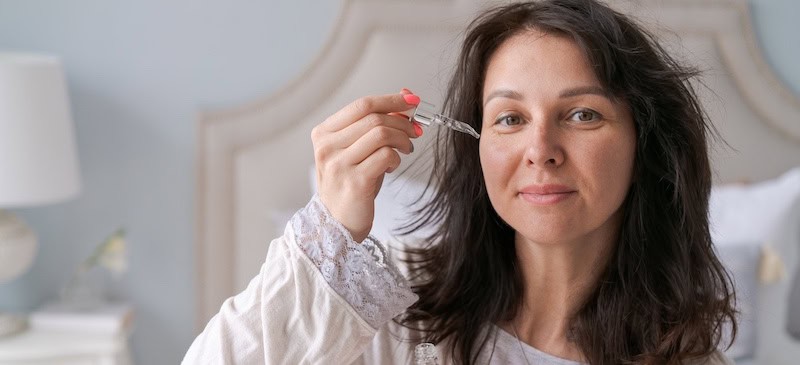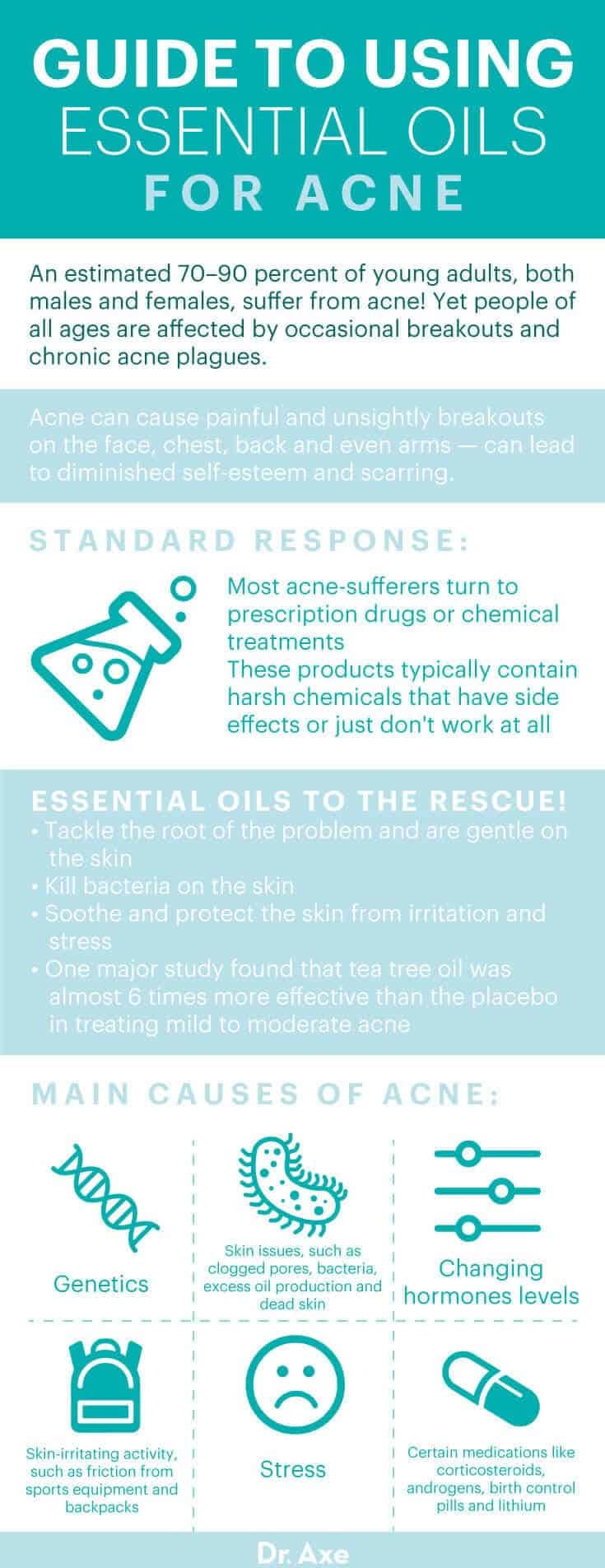This Dr. Axe content is medically reviewed or fact checked to ensure factually accurate information.
With strict editorial sourcing guidelines, we only link to academic research institutions, reputable media sites and, when research is available, medically peer-reviewed studies. Note that the numbers in parentheses (1, 2, etc.) are clickable links to these studies.
The information in our articles is NOT intended to replace a one-on-one relationship with a qualified health care professional and is not intended as medical advice.
This article is based on scientific evidence, written by experts and fact checked by our trained editorial staff. Note that the numbers in parentheses (1, 2, etc.) are clickable links to medically peer-reviewed studies.
Our team includes licensed nutritionists and dietitians, certified health education specialists, as well as certified strength and conditioning specialists, personal trainers and corrective exercise specialists. Our team aims to be not only thorough with its research, but also objective and unbiased.
The information in our articles is NOT intended to replace a one-on-one relationship with a qualified health care professional and is not intended as medical advice.
Top 19 Essential Oils for Acne
January 6, 2025

Acne is something virtually everyone deals with at one point or another, but so many can’t seem to find a treatment that actually works. Are there essential oils for acne that could do the trick?
Most of the time, people turn to prescription drugs or chemical treatments — investing in the latest “acne-curing solution” that has suddenly hit the market and will answer all of your prayers. The truth is that these products typically contain harsh chemicals that have side effects or just don’t work at all.
That’s why I advise you look to natural, home remedies for acne that have been used for thousands of years. These remedies include essential oils for acne that tackle the root of the problem and are gentle on the skin.
In fact, one major study found that tea tree oil was almost six times more effective than the placebo in treating mild to moderate acne!
So which oils are beneficial for treating and preventing acne? Keep reading to find out the best essential oils for acne and how they nourish your skin and fight the causes of acne naturally, without adding insult to injury with skin-irritating products.
Why use essential oils for acne?
People of all ages are affected by occasional breakouts and chronic acne plagues. Acne can cause painful and unsightly breakouts on the face, chest, back and even arms.
When it’s left untreated, acne can lead to diminished self-esteem and scarring.
The main causes of acne include clogged pores, bacteria, excess oil production and dead skin. Other factors, such as hormones, diet, stress and certain medications — such as corticosteroids, androgens, birth control pills and lithium — can also worsen acne.
Why do so many, teenagers especially, suffer from acne? Well, it can be due to genetics, changing hormone levels, stress or skin-irritating activity.
For instance, friction from sports equipment and backpacks can irritate the skin and cause acne breakouts on the chin, forehead, jawline, neck, chest and back.
It’s important to know that harsh chemicals and over-the-counter or prescription medications can cause further irritation — exacerbating the problem.
Essential oils for acne have the power to kill bacteria on the skin naturally. Some essential oils for acne, such as lavender oil, soothe and protect the skin from irritation and stress.
Essential oils for acne, such as lavender and clary sage, have the ability to alleviate feelings of stress and anxiety, fight insomnia and sleep deprivation, and balance hormone levels.
Best essential oils for acne
1. Tea tree
Tea tree oil benefits include its antimicrobial and antifungal properties. Over-the-counter acne treatments containing tea tree oil are now widely available, and evidence has indicated that they are a common choice among people who self-treat their acne.
A scientific review of the efficacy, tolerability and potential modes of action in regard to the treatment of acne with tea tree oil stated that tea tree products reduce lesion numbers in patients with acne, have tolerability levels that are similar to other topical treatments, and have antimicrobial and anti-inflammatory activities that are associated with the treatment of acne.
A 2007 study suggested that tea tree oil is an effective treatment for mild to moderate acne vulgaris. Sixty patients were divided into two groups — one group was treated with tea tree oil and one was the placebo.
The participants were followed every 15 days for a period of 45 days. The response to treatment was evaluated by the total acne lesions counting and acne severity index.
The results of the study showed a significant difference between tea tree oil gel and placebo in the improvement of the total acne lesions count, as tea tree oil was 3.6 times more effective than the placebo. In regard to overall acne severity, tea tree oil was 5.8 times more effective, proving that tea tree oil serves as an effective and natural treatment for mild to moderate acne.
2. Lavender
Lavender oil has profound benefits on your skin because of its antimicrobial and antioxidant characteristics. It soothes and nourishes the skin — helping treat acne, dry skin, and reduce the appearance of dark spots and scars caused by acne.
Other lavender oil benefits include its ability to reduce stress and anxiety that are associated with acne breakouts in adults and its therapeutic properties that improve your quality of sleep, thereby promoting healthy and radiant skin.
Several studies published in a 2024 review on the potential of essential oils to manage inflammatory skin conditions noted that lavender, particularly when combined with other essential oils for acne, can be effective in treating acne, burns, skin lesions, dermatitis and more.
3. Clary sage
An important ester present in clary sage, called linalyl acetate, helps reduce skin inflammation and works as a natural remedy for acne and skin irritations. It also regulates the production of oil on the skin, a factor that is often associated with breakouts.
Clary sage also curbs the growth and spread of bacteria, alleviates feelings of stress and anxiety, and supports hormonal balance.
Stress is a major cause of acne in adult women because it is associated with an increase in the levels of the stress hormone cortisol.
A 2014 study published in the Journal of Phytotherapy Research found that the inhalation of clary safe oil helped reduce cortisol levels by 36 percent in menopausal women. Researchers concluded that clary sage has a statistically significant effect on lowering cortisol levels, and it has an antidepressant effect, improving mood and fighting anxiety.
A 2015 study published in Advances in Dermatology and Allergology found that clary sage essential oil is an active natural antimicrobial agent. After testing the efficacy of clary sage on multiple drug-resistant bacterial stains, clary sage oil was active against bacteria that lead to skin infections, which can lead to acne breakouts or skin irritation.
4. Juniper berry
Juniper berry essential oil has natural antibacterial and antimicrobial abilities, making it one of the most popular natural remedies for fighting skin irritations and infections. It serves as a home remedy for acne and supports beautiful skin.
A 2005 study published in Pharmaceutical Development and Technology stated that juniper berry oil has antibacterial activity that serves as an anti-acne topical solution. The antimicrobial activity of juniper berry oil was studied as it made contact with acne vulgare.
When used with neat application or after dilution with carrier oils, juniper berry essential oil showed promising anti-acne activity. The modifications did not decrease the antibacterial activity of the oil.
Other studies have revealed that juniper berry essential oil is a powerful antibacterial agent that fights acne when used topically. This is due to specific compounds, including alpha-pinene, p-cymene and beta-pinene.
5. Thyme
Thyme essential oil has shown strong antibacterial properties against Propionibacterium acnes, the bacteria responsible for acne. A study published in 2022 demonstrated thyme’s effectiveness in reducing bacterial growth, suggesting its potential as a natural acne treatment.
In fact, the Society for General Microbiology reported in 2012 that thyme oil “could be more effective at treating skin acne than prescription creams.”
6. Rosemary
Rosemary oil possesses anti-inflammatory and antimicrobial properties, which can help reduce acne inflammation and bacterial activity. Research published in the Journal of Medicinal Food supports its role in decreasing acne severity.
It’s been shown to kill acne-causing bacteria in lab studies, it even displayed antibacterial effects (along with tea tree oil) against specific antibiotic-resistant bacteria that can cause acne.
7. Cinnamon
Cinnamon essential oil contains cinnamaldehyde, which has antimicrobial and anti-inflammatory effects. In fact, it’s been found to possess anti-acne properties and even can help kill acne-causing bacteria.
8. Oregano
Oregano oil is rich in carvacrol and thymol, compounds known for their potent antimicrobial effects. Research from 2018 highlighted oregano oil’s ability to combat acne-related bacteria, noting it “exhibited the strongest antimicrobial effect against the tested acne-causing bacteria,” in addition to fighting other bacteria.
These findings have been confirmed in more recent research as well.
9. Bergamot
Bergamot oil offers antibacterial and anti-inflammatory benefits, and research has indicated its ability to reduce acne lesions and promote clearer skin.
For example, research published in Phytomedicine Plus in 2022 noted that bergamot oil is associated with soothing inflamed skin, helping heal acne and scars, and treating psoriasis.
It’s also been found to help balance skin pH levels and provide radiant and smooth skin when used with rosemary oil.
10. Blue tansy
Blue tansy oil has anti-inflammatory and calming effects on the skin. Its antioxidant abilities can help protect skin.
11. Eucalyptus
Eucalyptus oil holds antimicrobial and anti-inflammatory properties, and it’s shown effectiveness against acne-causing bacteria. In fact, it’s used in anti-acne formulations for this very reason.
Another reason eucalyptus is among the top essential oils for acne is that studies show it can increase ceramide levels in skin and holds in hydration, strengthening the skin barrier against invaders that can cause acne.
12. Lemongrass
Lemongrass oil exhibits strong antibacterial activity, making it effective against Propionibacterium acnes, and a 2022 study published in the Journal of Microbiology and Biotechnology even evaluated the effects of lemongrass extract as a potential cosmetic ingredient to help treat acne.
The results showed lemongrass oil inhibited bacteria that contributes to inflammatory acne and is a promising ingredient for skin care.
A 2024 study went one step further, testing a microemulsion-based topical hydrogel containing lemongrass essential oil and mango seed kernel extract to treat acne. The in vitro study found that this gel was comparable to a popular acne drug in its effectiveness, and the study authors were definite in their conclusion.
They stated, “Conclusively, the microemulsion-based hydrogel containing lemongrass oil and mango seed extract demonstrated much potential to be a promising natural drug for acne treatment.”
13. Peppermint
Peppermint oil has cooling and anti-inflammatory properties, and research supports its effectiveness in reducing acne inflammation. While there are only limited studies showcasing its effects against acne bacteria in particular, a 2016 study showed peppermint oil worked as a treatment for chronic pruritus, a skin issue that leads to intense itching.
14. Basil
Basil essential oil contains eugenol, which has antibacterial and anti-inflammatory effects. Thai basil oil has displayed antimicrobial activity against Propionibacterium acnes, and researchers have noted it may be “suitable formulations for acne skin care.”
Topical application of basil essential oil preparations also have been found to reduce skin lesion counts quicker than a 10% benzoyl peroxide lotion.
15. Garlic
Garlic oil contains allicin, a compound with potent antibacterial properties. Garlic has been used in dermatology and found to be effective in protecting skin from UVB rays and helping with blood flow and immune health to support skin health.
A 2017 study in the Asian Journal of Pharmaceutical and Clinical Research even found that a gel made from garlic juice had anti-acne activity. The gel effectively fought against Propionibacterium acnes.
16. Camellia
Camellia oil is rich in antioxidants and anti-inflammatory compounds, and research supports its skin-soothing properties thanks to its ability to promote type 1 procollagen production and enhance skin barrier function.
A 2019 study found that camellia oil also can protect against air pollutants and associated skin damage. This is notable because air pollution is known to play a role in skin aging and inflammatory responses, including acne.
Camellia oil even shows potential in combating and protecting against skin cancer, proving it’s not only among the top essential oils for acne, but for skin health in general.
17. Tamanu
Tamanu oil has antimicrobial and wound-healing properties, particularly against atopic dermatitis. Research has revealed its ability to reduce acne scars and inflammation.
18. Black cumin seed
Black cumin seed oil contains thymoquinone, known for its anti-inflammatory and antibacterial effects, and there is an abundance of research showcasing its place among the top essential oils for acne.
A 2022 systematic review and meta-analysis of randomized, controlled trials shared several studies that show black cumin seed can help protect the skin, including helping treat acne. In addition, a 2017 review on the cosmeceutical and external applications of black cumin seed oil passed along results showcasing that this oil has better efficacy and fewer harmful side effects than benzoyl peroxide lotion 5%.
That’s not all. A randomized, double-blind, clinical trial published in 2020 had 30 patients take a black seed hydrogel and 30 other patients take a placebo twice a day for 60 days.
The black seed group saw significant reductions in the number of pustules, papules and comedones compared to the control group after two months, and the acne disability index score decreased 63.49% in the treatment group compared to just a 4.5% decrease in the placebo group.
The study authors concluded that black cumin seed “had significant effects on improving the symptoms of acne vulgaris with acceptable tolerability.”
19. Pomegranate seed
Pomegranate seed oil is rich in antioxidants and anti-inflammatory compounds, and studies have suggested it can help improve acne-prone skin.
In fact, a 2024 study published in the journal Pharmaceutics provided an abundance of evidence that proves pomegranate seed oil has anti-acne and skin-protective properties.
Each of these essential oils has unique properties that may help treat and prevent acne. Always perform a patch test and consult with a dermatologist before using any new essential oil on your skin.

How to use essential oils for acne
The best way to use essential oils for acne is to apply two to three drops topically to the area of concern. These oils are safe for neat or direct application, but they can also be combined with a carrier oil, such as jojoba or coconut oil.
In fact, when using coconut oil for skin health, you will notice surprising benefits. Coconut oil hydrates the skin and is able to penetrate your skin on a deeper level than your average product because of its low molecular weight and the way it bonds with proteins.
Jojoba oil is also a beneficial carrier oil that boosts skin health by working as a protectant and cleanser. It is rich in iodine and fights harmful bacteria growth that leads to breakouts.
Jojoba closely mimics the skin’s natural sebum, helping to balance oil production. It can speed up the healing process and reduce skin lesions, too.
Argan oil is another beneficial oil for acne. It’s non-comedogenic and helps regulate sebum production.
Rosehip oil is packed with linoleic acid, which can help reduce acne breakouts, so it’s another oil that can be used alongside essential oils for acne.
You can also diffuse essential oils to get aromatherapy benefits or use essential oils for acne in homemade cleaning products for the skin.
Here are some DIY recipes that utilize some essential oils for acne:
Risk and side effects
These essential oils for acne are safe and effective when used appropriately. Remember that a little goes a long way, so using two to three drops on the skin should do the trick.
If you have sensitive skin, dilute the essential oils with a carrier oil before applying topically.
Also, avoid exposure to direct sunlight when treating acne with essential oils. The UV rays can make your skin more sensitive and may lead to skin irritations or redness.
If using any of these essential oils causes skin irritation, do not use that oil. Try a gentler oil like lavender instead.
Frequently asked questions
What essential oil is best for acne?
Tea tree oil is considered one of the best essential oils for acne due to its antibacterial and anti-inflammatory properties. Of course, all the oils listed here are good candidates for helping treat and prevent acne.
Which oil is best for acne spots?
Rosehip oil is effective for fading acne spots and scars due to its high vitamin C and antioxidant content.
How do you get rid of acne in 3 days naturally?
Apply tea tree oil and other essential oils for acne topically, maintain a gentle skin care routine, use aloe vera gel, and avoid touching your face.
What oils should I avoid for acne?
Avoid heavy or comedogenic oils, like coconut oil, wheat germ oil and cocoa butter, as they can clog pores.
How do you mix essential oils for acne?
Mix a few drops of essential oil (e.g., tea tree or lavender) with a carrier oil (e.g., jojoba oil) before applying to your skin. You can also mix oils together for blends.
Is peppermint oil good for pimples?
Yes, peppermint oil has antimicrobial and soothing properties, which can help reduce inflammation and redness from pimples.
Can oils get rid of my acne scars?
Yes, oils like rosehip, argan and vitamin E oil can help reduce the appearance of acne scars over time.
Is tea tree oil good for acne?
Yes, tea tree oil is well-known for its antibacterial and anti-inflammatory effects, making it effective against acne.
Can you put essential oils on your skin?
Yes, but essential oils must be diluted with a carrier oil before applying directly to the skin to prevent irritation.








